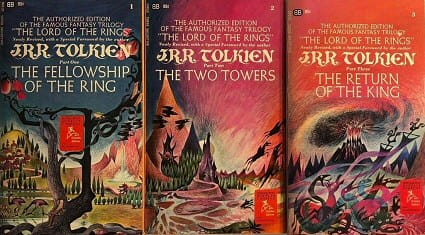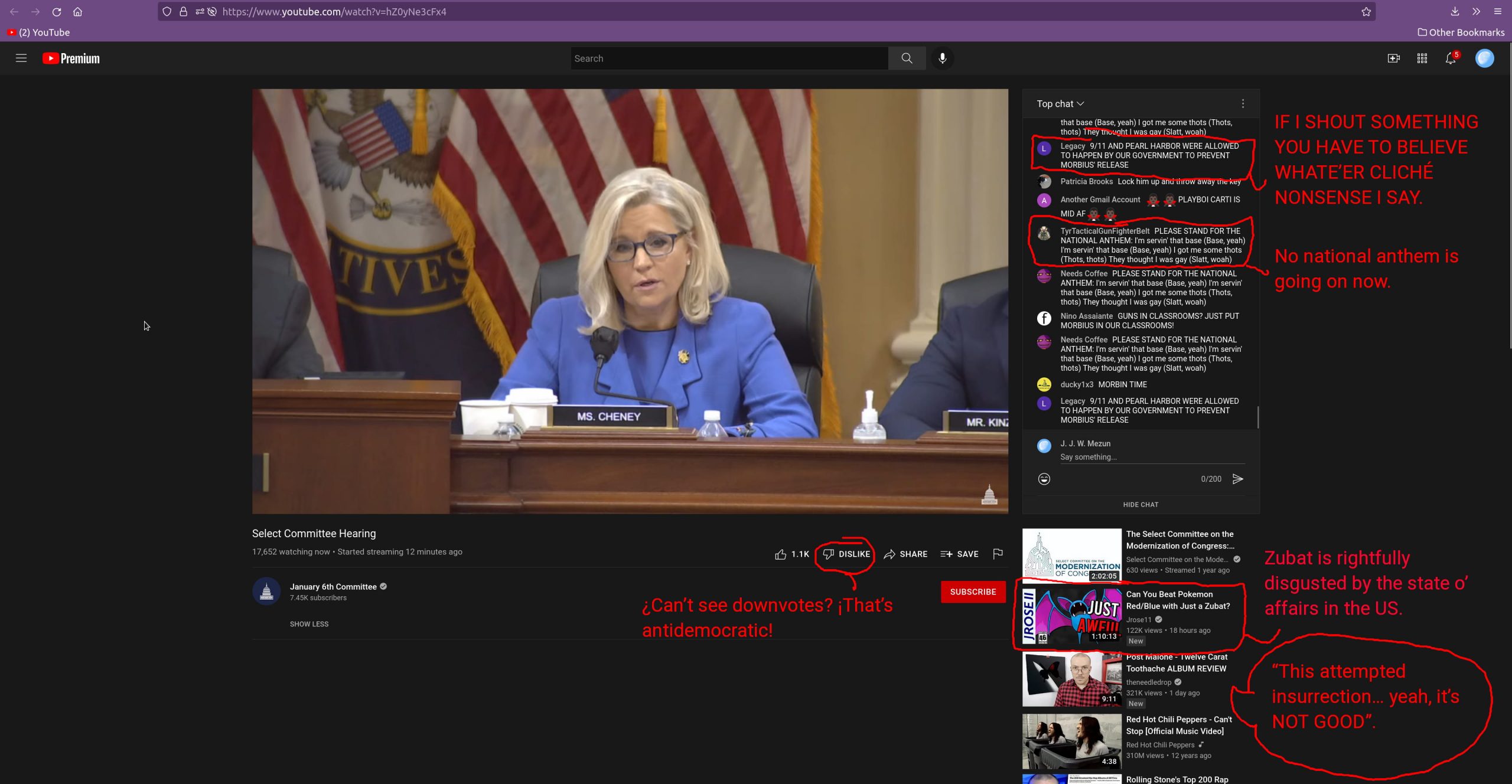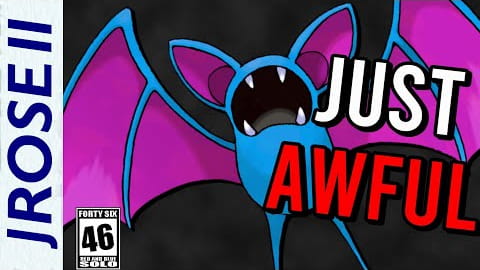summer morn ~
leaving cat food out
for the ants


summer morn ~
leaving cat food out
for the ants

The New York Times is a perennial target o’ mockery for the same reason as mainstream economics: as per my Nobel-Prize-winning Satirical Function for Determining Mockery for Particular Participants, a key component o’ Mezunian economics, as set forth in the face-melting Economicon, people with high opinions o’ their intelligence but low actual intelligence are the choicest targets. This is the newspaper who turn their noses @ the vulgar social media & blogs kicking their asses, which would be fine if they actually had standards ( I, too, turn my nose up @ social media, tho that’s mostly ’cause they have shitty user interfaces & try to dox me just by using them ), but this is also the same newspaper that regularly posts articles by “Suck On This, Iraq” living moustache Thomas Friedman; near Darwin Award winner for apparently almost dying from a pot candy bar, Maureen Dowd; Ross Douthat, a man who bragged ’bout how he was too stupid to read a relatively simple economics book that he shockingly misinterpreted ( Capital in the 21st Century isn’t Marxian but merely an adjustment to neoclassical economics ) while recommending creepy ol’ men in universities act as surrogate daddies to women students so they’d be less likely to be financially successful ( he references a study that shows that college students who attend rich parties a lot tend to be mo’ successful due to the networking opportunities ); & “Hot Dog & Bun Factory fairy tale proves offshoring doesn’t cause unemployment” Paul Krugman, the Nickelback o’ economists, dearly beloved by moderate “liberals” who have ne’er read any other economists.
So ’twas no surprise when looking o’er The New York Times’s list for the best books in the last 125 years ( that seemingly random # is due to it being a celebration for their own book reviews section ) that they also have terrible tastes in terms o’ literature. During the initial preliminaries we had a bizarre hodgepodge: Ulysses right next to “Harry Potter and the Sorcerer’s Stone” ( not only does The New York Times stupidly insist on using the inane US title made up by ignorant executives ’cause they thought US readers would be as dumb as them, they also picked 1 that hardly any Harry Potter fan would pick o’er, say, The Goblet of Fire or The Order of the Phoenix ), The Great Gatsby next to Charlotte’s Web. ( If they were going to include a kid’s book, ¿why the hell would they pick a book that mo’ people probably know ’bout due to the Hanna-Barbera cartoon rather than something like Alice in Wonderland, which has actual literary value & is 1000-times mo’ influential? ). Meanwhile missing are À la recherche du temps perdu, which is regularly put up there with Ulysses; no The Magic Mountain; no Gravity’s Rainbow; no Moby Dick; no Petersburg by Andrei Bely ( admittedly an underrated gem e’en outside the New York Times ); nor a single book by Virginia Woolf, Gertrude Stein, Ernest Hemingway, William Falkner, Ralph Ellison, Zora Neale Hurston, Umberto Eco, Borges, Yukio Mishima…
But since then they’ve narrowed it to 5 choices. Let’s see what these choices are:
This isn’t a bad choice, tho NYT readers probably only know ’bout it now thanks to the brilliant marketing assistance Republicans are giving Toni Morrison by banning it from schools for making white kids feel queasy, a common character-building exercise schools employ ( Republicans, as everyone knows, are disgusted by the idea that their children might build mo’ character ’bove their own feebleness ).
I want you to keep in mind this entry’s ranking for later, tho…
Also a solid book, tho I can’t imagine anyone truly familiar with Latin American literature ranking this as higher than much o’ Borges’s work ( indeed, it’s a post on r/unpopularopinions ), which was much mo’ experimental & arguably mo’ influential. Granted, this is probably the only Latin American work these honkeys know.
& here’s where it all goes downhill. This book is dogshit. Isaac Asimov wrote a famous devastating review gainst this book & its cynical attempt to half-assedly exploit science fiction without understanding an iota o’ that genre & all its nuances as a tool for pure political propaganda by a man who, howe’er great his politics were ( a’least before he started McCarthying people he suspected were communist, gay, “too anti-white” — read: opposed to racism gainst black people — to the UK’s IRD ), ne’er had any respect or understanding for art as art itself, who saw it as nothing beyond a tool for propaganda, as everything else. Beyond politics this book has no value: its characters are 1-dimensional strawmen, its language is basic, & the world-building is shallow & inane — a whiny teenager’s idea o’ how e’en totalitarian societies operate, which is why teenagers ( & those whose politics is mentally adolescent ) love it so much.
But e’en as propaganda, this book is an utter failure: it’s an amazing self-own that such a vociferous democratic socialist created the greatest tool o’ propaganda gainst socialism, used primarily by alt-right hacks like Ben Shapiro, which is easy thanks to this book being so broad & vague — which is precisely why it “resonates” with everyone: it allows everyone to fill in the “evil” side with whate’er they want. That the man who warned ’bout the emptiness o’ terms like “democracy” & “fascism” would write a book with heroes & villains so empty is a shocking failure. His nonfiction, specially his essays & Homage to Catalonia, are far better than this waste o’ time.
The New York Times are such morons that they don’t e’en realize that this isn’t a book, but part o’ a book: mistaking The Lord of the Rings as a “trilogy” ’stead o’ a single, unified book separated into volumes by the publisher gainst Tolkein’s wishes for crass business reasons is a classic amateur move. For anyone else it’d be nitpicking, but it’s hilarious to me that an organization that prides themselves on s’posed honest integrity would make a basic mistake that you’d get roasted for on fucking TV Tropes, the website that lets anyone add whate’er conspiracy theory they want without citations & calls themselves a “buttload mo’ informal” than Wikipedia ( which also wouldn’t let such a sloppy mistake slide ). This is pretty much exhibit A evidence that it’d be safer to get your news from Wikipedia than The New York Times ( which is not to encourage getting one’s news from Wikipedia ).
They also lose points for not using the kickass psychedelic book covers they used in the 60s official US editions as their image:

Some might expect me to laugh @ The New York Times for putting a mainstream fantasy work @ the #2 spot; but while I myself would not consider The Lord of the Rings the 2nd best novel o’ the last 125 years, or e’en in the top 10, I can see some reasoning ’hind its inclusion: it’s unquestionably the most influential book on this list that pretty much created the modern fantasy genre as it exists. That deserves some props. It also has a lot mo’ literary value than people give it credit: it has finely-crafted worldbuilding that pays attention to details down to the moon cycles with believable fantasy languages ( helped by Tolkein being a legit linguist ). While the characters can be hokey sometimes, there is mo’ moral nuance than one might remember: it’s a clever twist that the ring is vanquished not by the nobility o’ the heroes, who it turns out, are not so heroic that they can o’ercome the ring’s power, but by the pitiful Golem, who accidentally drops it in the volcano trying to steal it — & is only able to ’cause earlier in the book the heroes decide to spare him. Granted, it’s just conservative Christian “turn the other cheek” slave morality; but genuine Christian morality is mo’ refreshing than the might-makes-right white-&-black morality that conservatives oft erroneously pass off as Christian morality. Moreo’er, tho, this book has excellent prose, specially its scenery descriptions, which is a rarity in a lot o’ contemporary literature, both “literary” & “genre”.
It’s better than Harry Potter & certainly several leagues ’bove 1984, as well as the next book on this list…
This choice for #1 book o’ the past 125 years is such an amazingly bad choice — & yet so perfect for The New York Times’s main demographic. Its o’errated mediocrity is merely a reflection o’ The New York Times.
Much as 1984 is only beloved as juvenile political propaganda, To Kill a Mockingbird is mainly beloved as a weak white-centric attack gainst racism — which is specially bad when you consider Beloved, a much better book in every way that’s much mo’ devastating & unsentimental in its criticism o’ racism, was 4 books below. That none o’ Ralph Ellison’s books made it on this list or e’en the preliminary list is criminal. These fuckers thought god damn Charlotte’s Web is better than Invisible Man. What toilet paper o’ a newspaper.
& yet, it can’t be a surprise that the multitude o’ self-indulgent white liberals who read The New York Times would prefer this self-masturbatory tract o’ the noble middle-class white lawyer who tries to save a black man, who is treated mo’ as a prop to demonstrate our white savior’s greatness than as a real person, from the savage poor whites. Mixed in this book is a ton o’ classism: only the upper-middle-class lazy-libertarian Atticus, who opposes systems o’ racial inequality but praises systems o’ economic inequality that are just as racist, & Tom Robinson’s rich employer are depicted as anti-racism ( the book doesn’t acknowledge that both these people — the Atticuses have a black servant — exploit their racist society to get cheap labor out o’ black people ). It legit reads like a South Park episode, & is a twisted view o’ the real world: tho there are definitely racist, dumb, & repulsive poor white people, rich white institutions are the leaders in exploiting racism for their gains.
In addition to its weak-ass politics, this book doesn’t have all that much literary value. Compare Beloved, with its anachronistic chapter order & its greater use o’ imagery, color, symbolism, & just o’erall much better prose. To Kill a Mockingbird is a thoroughly unexperimental book with prose so basic & repetitive it becomes tedious to read real quick & makes hardly any use o’ the large gamut o’ tools the English language & structures put @ the writer’s disposal. Ironically, Truman Capote’s friend hardly did a better job o’ writing rather than typing than Jack Kerouac.
Here’s an example o’ the stellar prose in this book:
The Radley Place fascinated Dill. In spite of our warnings and explanations it drew him as the moon draws water, but drew him no nearer than the light-pole on the corner, a safe distance from the Radley gate. There he would stand, his arm around the fat pole, staring and wondering.
The Radley Place jutted into a sharp curve beyond our house. Walking south, one faced its porch; the sidewalk turned and ran beside the lot. The house was low, was once white with a deep front porch and green shutters, but had long agodarkened to the color of the slate-gray yard around it. Rain-rotted shingles drooped over the eaves of the veranda; oak trees kept the sun away. The remains of a picket drunkenly guarded the front yard— a “swept” yard that was never swept— where johnson grass and rabbit-tobacco grew in abundance.
& that was me trying to find a relatively good part o’ the book. It’s hardly the worst prose in the world — ¿but this is the kind o’ prose in the best book o’ the past 125 years? ¿Better than the flowing detailed descriptions o’ À la recherche du temps perdu? ¿Better than the haiku-like sharp details & experimental subjective perspectives o’ Virginia Woolf’s The Waves? Give me an hour & I could probably find 100 books with better prose than this book, which hardly has any better prose than your average Stephen King or James Patterson. I think Brandon Sanderson probably has better prose & unquestionably Lord of the Rings does.
Meanwhile, most o’ the prose is tedious dreck like this:
Mrs. Merriweather seemed to have a hit, everybody was cheering so, but she caught me backstage and told me I had ruined her pageant. She made me feel awful, but when Jem came to fetch me he was sympathetic. He said he couldn’t see my costume much from where he was sitting. How he could tell I was feeling bad under my costume I don’t know, but he said I did all right, I just came in a little late, that was all. Jem was becoming almost as good as Atticus at making you feel right when things went wrong. Almost—not even Jem could make me go through that crowd, and he consented to wait backstage with me until the audience left.
I know some people take the “show, don’t tell” thing too far & demand that everyone “clench their fist” & bark like dogs rather than just be pissed off, but “She made me feel awful, but when Jem came to fetch me he was sympathetic” might be 1 o’ the most sterile way to describe something, specially since the sentence right after already shows how he shows sympathy, so this sentence is redundant filler. I refuse to believe this isn’t rough draft material.
& I know this is s’posed to be a child narrating ( ¿tho is it s’posed to be a child now or an adult reminiscing ’bout their childhood? ), but e’en children aren’t this dull, & it’s not as if children are this grammatically correct, anyway. Contrast with The Adventures of Huckleberry Finn, which is also from the perspective o’ a child, which has much mo’ character to its hick talk — not the least o’ which ’cause Mark Twain put much mo’ care into the various dialects. Also, Huckleberry Finn is a comedy, so its plain talk works better than when To Kill a Mockingbird tries to use it for s’posedly profound speeches.
Here’s an example o’ The Adventures of Huckleberry Finn’s much better prose:
We judged that three nights more would fetch us to Cairo, at the bottom of Illinois, where the Ohio River comes in, and that was what we was after. We would sell the raft and get on a steamboat and go way up the Ohio amongst the free States, and then be out of trouble.
Well, the second night a fog begun to come on, and we made for a towhead to tie to, for it wouldn’t do to try to run in a fog; but when I paddled ahead in the canoe, with the line to make fast, there warn’t anything but little saplings to tie to. I passed the line around one of them right on the edge of the cut bank, but there was a stiff current, and the raft come booming down so lively she tore it out by the roots and away she went. I see the fog closing down, and it made me so sick and scared I couldn’t budge for most a half a minute it seemed to me—and then there warn’t no raft in sight; you couldn’t see twenty yards. I jumped into the canoe and run back to the stern, and grabbed the paddle and set her back a stroke. But she didn’t come. I was in such a hurry I hadn’t untied her. I got up and tried to untie her, but I was so excited my hands shook so I couldn’t hardly do anything with them.
As soon as I got started I took out after the raft, hot and heavy, right down the towhead. That was all right as far as it went, but the towhead warn’t sixty yards long, and the minute I flew by the foot of it I shot out into the solid white fog, and hadn’t no more idea which way I was going than a dead man.
Note that when this book’s telling, it just tells in short sentences, saving its long, multi-clause sentences for mo’ detailed description. Also note how the hick talk is done thru a much livelier dialect, rather than just sounding like it’s coming from an uneducated robot.
Keep in mind, most wouldn’t say that Huckleberry Finn has anywhere near the best prose o’ all literature — it’s just 1 o’ hundreds with better prose than To Kill a Mockingbird.
While this book is relatively short @ 96,000 words, its main plots — Tom Robinson’s trial & the mystery o’ Boo Radley — are e’en shorter. So short, in fact, that this book could probably be a novella if not for all the padded-out dialogue of ordinary people doing ordinary things. There’s 1 scene that goes on for several pages wherein Jem tries to give a note to Boo Radley, which just goes back & forth with filler dialogue, only to end on a shaggy dog story when Atticus stops him. This kind o’ stuff isn’t inherently terrible: Ulysses, widely considered 1 o’ the best works o’ English literature, is mostly just ordina — well, people doing ordinary things. But that book plays a dozen literary tricks as it does so, which is why there are entire books dedicated to footnotes for every few sentence o’ that book, while there’s nothing to say ’bout e’ery “Thank you” & “No, sir” in this book. Plus, e’en its prose is better: nothing in this book will compare to the lavish way Bloom describes the uses o’ water in the “Ithaca” chapter.
’Nother contrast. Here’s 1 o’ the dozen or so pointless scenes in Mockingbird:
One afternoon a month later Jem was ploughing his way through Sir Walter Scout, as Jem called him, and Mrs. Dubose was correcting him at every turn, when there was a knock on the door. “Come in!” she screamed.
Atticus came in. He went to the bed and took Mrs. Dubose’s hand. “I was coming from the office and didn’t see the children,” he said. “I thought they might still be here.”
Mrs. Dubose smiled at him. For the life of me I could not figure out how she could bring herself to speak to him when she seemed to hate him so. “Do you know what time it is, Atticus?” she said. “Exactly fourteen minutes past five. The alarm clock’s set for five-thirty. I want you to know that.”
It suddenly came to me that each day we had been staying a little longer at Mrs. Dubose’s, that the alarm clock went off a few minutes later every day, and that she was well into one of her fits by the time it sounded. Today she had antagonized Jem for nearly two hours with no intention of having a fit, and I felt hopelessly trapped. The alarm clock was the signal for our release; if one day it did not ring, what would we do?
“I have a feeling that Jem’s reading days are numbered,” said Atticus.
“Only a week longer, I think,” she said, “just to make sure…”
Jem rose. “But—”
Atticus put out his hand and Jem was silent. On the way home, Jem said he had to do it just for a month and the month was up and it wasn’t fair.
“Just one more week, son,” said Atticus.
“No,” said Jem. “Yes,” said Atticus.
( “‘Come in!’ she screamed”, followed immediately in the next paragraph, “Atticus came in”, is some prime bathos ).
Anyway, here’s the far better “boring” scene from Ulysses:
What in water did Bloom, waterlover, drawer of water, watercarrier, returning to the range, admire?
Its universality: its democratic equality and constancy to its nature in seeking its own level: its vastness in the ocean of Mercator’s projection: its unplumbed profundity in the Sundam trench of the Pacific exceeding 8000 fathoms: the restlessness of its waves and surface particles visiting in turn all points of its seaboard: the independence of its units: the variability of states of sea: its hydrostatic quiescence in calm: its hydrokinetic turgidity in neap and spring tides: its subsidence after devastation: its sterility in the circumpolar icecaps, arctic and antarctic: its climatic and commercial significance: its preponderance of 3 to 1 over the dry land of the globe: its indisputable hegemony extending in square leagues over all the region below the subequatorial tropic of Capricorn: the multisecular stability of its primeval basin: its luteofulvous bed: its capacity to dissolve and hold in solution all soluble substances including millions of tons of the most precious metals: its slow erosions of peninsulas and islands, its persistent formation of homothetic islands, peninsulas and downwardtending promontories: its alluvial deposits: its weight and volume and density: its imperturbability in lagoons and highland tarns: its gradation of colours in the torrid and temperate and frigid zones: its vehicular ramifications in continental lakecontained streams and confluent oceanflowing rivers with their tributaries and transoceanic currents, gulfstream, north and south equatorial courses: its violence in seaquakes, waterspouts, Artesian wells, eruptions, torrents, eddies, freshets, spates, groundswells, watersheds, waterpartings, geysers, cataracts, whirlpools, maelstroms, inundations, deluges, cloudbursts: its vast circumterrestrial ahorizontal curve: its secrecy in springs and latent humidity, revealed by rhabdomantic or hygrometric instruments and exemplified by the well by the hole in the wall at Ashtown gate, saturation of air, distillation of dew: the simplicity of its composition, two constituent parts of hydrogen with one constituent part of oxygen: its healing virtues: its buoyancy in the waters of the Dead Sea: its persevering penetrativeness in runnels, gullies, inadequate dams, leaks on shipboard: its properties for cleansing, quenching thirst and fire, nourishing vegetation: its infallibility as paradigm and paragon: its metamorphoses as vapour, mist, cloud, rain, sleet, snow, hail: its strength in rigid hydrants: its variety of forms in loughs and bays and gulfs and bights and guts and lagoons and atolls and archipelagos and sounds and fjords and minches and tidal estuaries and arms of sea: its solidity in glaciers, icebergs, icefloes: its docility in working hydraulic millwheels, turbines, dynamos, electric power stations, bleachworks, tanneries, scutchmills: its utility in canals, rivers, if navigable, floating and graving docks: its potentiality derivable from harnessed tides or watercourses falling from level to level: its submarine fauna and flora (anacoustic, photophobe), numerically, if not literally, the inhabitants of the globe: its ubiquity as constituting 90 % of the human body: the noxiousness of its effluvia in lacustrine marshes, pestilential fens, faded flowerwater, stagnant pools in the waning moon.
( This is also bathos, but intentional, & much mo’ interesting & obviously took much mo’ work to conjure up than the filler dialogue before ).
OK… but all these problems would be… acceptable, I guess, for the best book e’er if the plot & characters were jaw-droppingly well-written. Well, they’re not. The story is average @ best, but the characters are straight-up terribly written. This book stars not 1, but 2 Mary Sues: the aforementioned noble white middle-class lawyer, who has no flaws, & his spoiled brat o’ a narrator who’s not like all the other girls & spends most o’ the book praising her flawless father. I should add that this book is heavily based on Harper Lee’s own upbringing, so it’s a shock that the characters who represent the author & her beloved father are depicted as perfect. This legit reads like a bad fan fiction or webcomic.
There are 3 types o’ characters in this book: the perfect anti-racist white heroes, the vile racist poor white villains ( so vile that the main villain has to stoop to attacking the Finch children, e’en tho racist people rarely go round killing the white children o’ e’en antiracist white people, ’cause apparently killing black people isn’t evil ’nough ), & the black people, who are all peaceful, servile Uncle Tom 2ndary props to warm all the white liberal hearts. 1 sickeningly sappy scene depicts a large community o’ blacks giving food to their white Jesus, Atticus. The 1 time a black person does anything resembling active resistance is when Tom Robinson tries to flee from jail & is shot to death, which is considered foolish by our noble whites & worth mo’ noble pitying. In this book black people are worthy o’ nothing beyond pity. That’s why they’re symbolized by the titular mockingbird that’s killed: they’re cute li’l pets to make rich white liberals feel good ’bout themselves ( to be fair, the other “mockingbird” is a shy abused child, who is also a pet for well-off people, & his abuse is ’nother example o’ the evil o’ poor people ). Heaven forbid this book depict actual struggle — ¡perhaps e’en with violence! — as that would make this book’s white audience squeamish & they would probably turn round & root for their white supremacist society. This book’s outdated relic o’ racial ( & specially economic ) politics is perfect for an outdated relic that is The New York Times, whose own politics are consistently early-20th-century.
Special note should be given to their critic note for this book. In addition to acknowledging their idiocy in missing a basic fact stated plainly ( since subtlety was beyond Harper Lee’s literary skills ) in this book when they 1st read it, they @ 1 point brag ’bout how New York is so much better than the savage rural lands ’cause they know how to leave people ’lone ( said the airbag who probably supported “Stop & Frisk” for “improving law & order” ), leaving e’en an urbanite elitist like me wishing to Allah that Al-Qaeda would bomb these fuckers ’gain.
summer noon ~
raining down the blue sky
chunks o’ grass
early summer ~
parading the streets
white pollen
Nasty fuck the Highway Ho’s meth heads sick Ha Ha Ha…
Dick’s sell out’s Nasty
fuck sooty P and oterS… with a ** dick.


<No way>.
Autumn said it in a gasp as she peered inside the open window, having called out for someone & hearing no answer.
She took a deep gulp & then climbed inside. She wandered thru all o’ the few rooms with her breath held & found no one inside. & yet she knew the place couldn’t have been abandoned by the mess o’ too much junk to notarize it all strewn ’bout or left round without care — a mess which would probably disgust someone with high sensibilities, but which excited Autumn with golden possibilities.
She dropped her pack & put her papers & Bible inside, & then pulled out a long jacket & wrapped it round her with the hood up & then put a black ski mask o’er her face. She watched herself in the bathroom mirror & saw that all her hair was covered, as well as e’ery part o’ her face but her eyes.
{ Wish it wasn’t so scorching hot, tho }, she thought as she fought the urge to pull down her mask & start furiously scratching her itchy face. { O well: it’ll encourage me to hurry mo’ }.
Then she pulled out a black plastic garbage bag & began wandering the apartment, picking up items that seemed useful. She started with goods that weren’t worth any money value, but would save her from having to shop: a coffee pot & maker, coffee grinds, a can opener, pots & pans, cups, plates, & bowls, boxes o’ soap, packets o’ sponges, the whole utensil drawer, & whate’er canned & boxed food she could find in the cupboard, as well as some well-contained food she could find in the fridge & freezer.
A long day…
Peed its pants
the telephone pole.

Stormy night
the microwave dings ~
grumble grumble…
Later Addendum: Since I ne’er revisited this lovely topic, I ne’er got a chance to update on my latest opinion on these committees. Believe it or not I did watch the rest o’ them & I did find the later ones far mo’ enlightening, but clearly not worthy material for satire. Thus, don’t put much stock in my dismissive opinions o’ this 1st committee, which was mostly already-known info.
Yawn. Ordinary Americans don’t care ’bout silly things like an attempted coup to set up a fascist dictatorship. ¿Why isn’t there a committee on gas prices, sis? ¿Who cares ’bout the possibility o’ any citizen being arrested & e’en killed without trial when I have to pay an extra $ per mile?
Republican talking points heading into the J6 hearings are remarkably consistent. pic.twitter.com/F56oNbEVIm
— Ron Filipkowski 🇺🇦 (@RonFilipkowski) June 6, 2022
You have no idea how goofy it feels to see such a serious committee shown on YouTube — ¡but a’least the January 6th Committee got their checkmark! — next to a chat full o’ conspiracy theorists & dank memes — ’cause ’course — & videos by meme music critic, Red Hot Chili Peppers music video, & Pokémon challenge video:

I’m glad that the chairman decided to start for several minutes babbling ’bout US history for several minutes ’stead o’ getting to the point o’ what happened on 1/6 — the actual point o’ this committee.
On the other hand, that sick Day At The Fair song reference is worth it all. I ne’er would’ve guessed Mr. Thomson was a pop-punk fan.
Cheney: “You will hear that Trump was angry @ the idea o’ doing mo’”. Well, that’s no news in any situation.
Deadpan Cheney: “A bunch o’ proud boys invaded the capitol”. Lesson: don’t be committing infamous insurrection when you can’t be bothered to write a better name for yourselves.
Genius on Reddit asking the important questions:
A bunch o’ criminals acting on Trump’s behalf ask to be pardoned by Trump. Sounds like the glorious Constitution letting the US president pardon anyone they want was a stupid idea.
I almost forgot ’bout that: “We love you. You’re very special. Go home”. I love how that is both unquestionably collusive & incredibly silly. Imagine baffled schoolchildren being forced to read that in a history book.
Cheney’s empty speech: “…to be ruled by law, not by men”. Me, obnoxiously anal-retentive: “¡But laws are just made by people, you fool!”.
I’m not surprised Jefferson called Washington stepping down a miracle: he hated him.
“¡These are our streets!”, chud says as he pointed to sidewalk.
“¡We love Trump!”. They couldn’t e’en come up with clever slogans.
It’s morbid for me to says so ( ¡’Cause I’m ne’er one to be morbid! ), but I can’t help noticing how good this video editing for the footage o’ the insurrection is, going back & forth from the riot & the congressional meeting.
“The Crypt is breached”. (Laughs). ¿What? So e’en congress admits they’re ol’ zombies.
I’m mixed on this committee — similar to what I felt watching the presidential debates: on 1 hand, it’s mostly obvious shit that’s been out there for anyone to find for themselves if they had the smallest semblance o’ curiosity, elongated with long, sappy, emotionally-driven empty words with easy meat ’bout being American; on the other hand, the vast majority o’ Americans are uneducated, so you can’t just lay on thick but curt details & facts & expect them to comprehend it.
Also, I will ne’er feel myself die inside whene’er I hear some serious politician say “Proud Boys”. ¡God damn it, he just did it ’gain!
Former Proud Boy looking real hipster.
I can’t believe that cringe Darth Vader video by Señor Proud Boy there.
You may be paying attention to all those li’l facts ’bout quick reaction forces & all the illegal weapons they had on them, blah, blah, blah, but you probably missed the most vital crime: “The hotel was not as satisfactory as we hoped”.
Everyone else online makes dumb jokes ’bout tacos, which aren’t e’en funny in & o’ themselves. I can’t believe they’re all e’en less funny than I am.
A’least The Onion is still funny as always:
Biden Vows Not To Forget Lessons Of January 6: ‘We Must Hang Mike Pence’ https://t.co/ag9jXnTOyW pic.twitter.com/WYXRxVPCxg
— The Onion (@TheOnion) June 10, 2022
Genius 4D Chess Conspiracy Theorist: “‘F. U. C. K. Antifa’. That just proves that they were antifa”.
Mo’ controversial news: those cowards @ Fox News caved on their promise not to show the Committee. Guess they’re greedy capitalist side o’erran their fear o’ hurting their ulterior goals, so they couldn’t miss out on those sexy extra views. “Aw, ¿Hunter Biden? ¿’Gain? I’m watching the committee on CNN”.
Mr. Thompson summarizes Officer Edwards’s testimony: ’twas very violent. Thanks, I didn’t know that. I saw those photos o’ the capitol on fucking fire & thought, “This is fine”, like that dog.
Typical Democrats: “¡Let’s hear the insurrectionists’ side!”.
I love the idiot saying, “What disappointed me was that Trump said he’d be there & he wasn’t”. Probably still hasn’t learned. The scam ne’er ends.
Chud: “Trump only asked me for 2 things: he asked me to vote & to cum on January 6”.
Yeah, not that I don’t doubt that Trump is responsible for 1/6, but I didn’t find this committee very illuminating. Most o’ the information was already known, the only new information was a few Republicans trying to distance themselves from Trump, mainly that one guy who was focusing on pardons during the insurrection, & that British documentarian finding that info ’bout the secret weapons & going to the capitol before Trump’s speech to scope out the place, which was smothered in irrelevant bullshit ’bout where they ate lunch & the hotel they went to, & then most o’ the 2 hours were dedicated to showing how violent & extreme ’twas, which isn’t new information. In short, I give this committee a 4/10 & I give this live blog a 2/10, ’cause it turns out, shockingly ’nough, that I can’t be funny when trying to furiously type shit out as it’s happening. I’ll stick to my usual strategy o’ taking several months to a year to mull o’er shit I write so it can become outdated & irrelevant by then.
In fact, I would say this committee & my blog post specially were…

A summer day
@ the bus stop,
happy habits.
